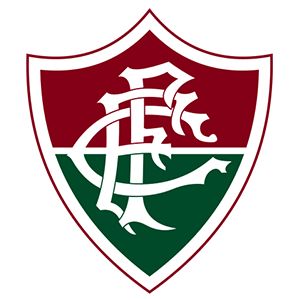Search results
People also ask
What is Copa Libertadores?
How many clubs have won the Copas Libertadores?
What is the 2022 Copa Libertadores?
Where can I watch the Copa Libertadores?
The CONMEBOL Libertadores, also known as the Copa Libertadores de América (Portuguese: Copa/Taça Libertadores da América), is an annual continental club football competition organized by CONMEBOL since 1960. It is the highest level of competition in South American club football.
Follow all the latest CONMEBOL Libertadores football news, fixtures, stats, and more on ESPN.
The Copa Libertadores is a seasonal association football competition that was established in 1960. It begins in mid-January and ends with the final in November of the same year.
- The Dawn to The Copa Libertadores
- First Decade: 1960–69
- 1970–79: Argentine Decade
- 1980–89
- 1990–99
- 2000–09: A Decade of Resurgences
- 2010–19
- 2020–Onwards
- See Also
The roots of the competition had existed for a long while the South American spirit of competition at club level was present since the beginning of the century. During the 1930s and 1940s, Argentinean and Uruguayan clubs vied for the Copa Ricardo Aldao between their respective champions rotating the location of the final every a year Buenos Aires a...
Beginning: Peñarol
The first entrants of the inaugural edition included seven national champions: Bahia of Brazil, Jorge Wilstermann of Bolivia, Millonarios of Colombia, Olimpia of Paraguay, Peñarol of Uruguay, San Lorenzo of Argentina and Universidad de Chile of Chile. Peru, Ecuador and Venezuela did not send any representatives. Carlos Borges of Peñarol scored the first goal of the tournament, with teammate and legendary figure Alberto Spencer scoring the first hat-trick. They will become fundamental figures...
1962–63: The Santasticos
During the early years, Peñarol was the dominating team in the South American club football, and managed to reach the final for the third consecutive year when they faced the Brazilian champions Santos. At that time, Santos was led by Brazilian football superstar Pelé. The club went on to win the Taça Brasil that previous year, crushing Bahia in the finals; Pelé finished as top scorer of the tournament with 9 goals. The victory allowed Santos to participate in the Copa Libertadores. The Copa...
1964–69: Argentine predominance
An Argentine team wrote down its name in the history of the tournament for the first time in 1964. Independienteknocked-out the defending champions Santos in semi-final, and later became the first Argentine team to win the competition. Argentine football finally inscribed their name on the winner's list in 1964 when Independiente became the champions after disposing of reigning champions Santos and Uruguayan side Nacional in the finals. Independiente successfully defended the title in 1965; P...
The 1970s were dominated by Argentine clubs, except for three seasons. In a rematch of the 1969 finals, Nacional emerged as the champions of the 1971tournament after overcoming an Estudiantes squad depleted of key players. With two titles already under their belt, Independiente created a winning formula with the likes of Francisco Sa, José Omar Pas...
Nine years after their first triumph, Nacional won their second cup in 1980 after overcoming Internacional. Despite Brazil's strong status as a football power in South America, 1981 marked only the fourth title won by a Brazilian club. Flamengo, led by stars such as Zico, Júnior, Leandro, Adílio, Nunes, Cláudio Adão, Tita and Carpegiani, sparkled a...
Having led Olimpia to the 1979 title as manager, Luis Cubilla returned to the club in 1988. With the legendary goalkeeper Ever Hugo Almeida, Gabriel González, Adriano Samaniego, and star Raul Vicente Amarilla, a rejuvenated decano boasted a formidable side that promised a return to the glory days of the late 1970s. After coming up short in 1989 aga...
During the 2000 edition, Boca Juniors returned to the top of the continent and raised the Copa Libertadores again after 22 years. Led by Carlos Bianchi, the Virrey, along with outstanding players like Mauricio Serna, Jorge Bermúdez, Óscar Córdoba, Juan Roman Riquelme, and Martín Palermo, among others, revitalized the club to establish it among the ...
In 2010, a spell of the competition only being won by Brazilian clubs for four years began with Internacional to win their second Copa Libertadores after defeating Guadalajara (mostly known for its nickname The Chivas), the second Mexican club to reach a Copa Libertadores final. The Mexican side, which suffered the absence of several players called...
The decade started with a Brazilian predominance in the first two editions. 2020 saw Palmeiras to lift its second trophy as it defeated São Paulo state rivals Santos1–0. Breno Lopes scored the winner in stoppage time in the second half, soon after Santos' manager was sent off due to time-wasting. Palmeiras won their third Copa Libertadores title in...
Jan 4, 2021 · The Copa Libertadores, South America's biggest club football competition, is nearing its much-anticipated climax - and you will be able to watch live on the BBC.
Feb 10, 2022 · The 2022 edition of the Copa Libertadores — the premier continental club competition in South America — will see 31 teams looking to dethrone two-time defending champion Palmeiras for the...
Jul 7, 2022 · The 2022 Copa Libertadores — the equivalent of the UEFA Champions Leagued in South America — is wrapping up the Round of 16 stage and the bracket is set through to the final, which will be...












